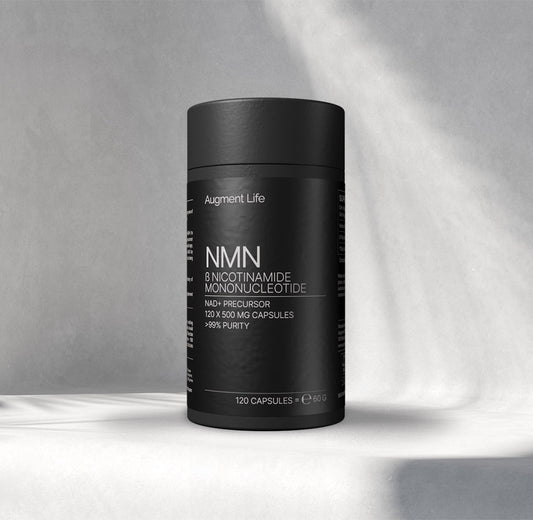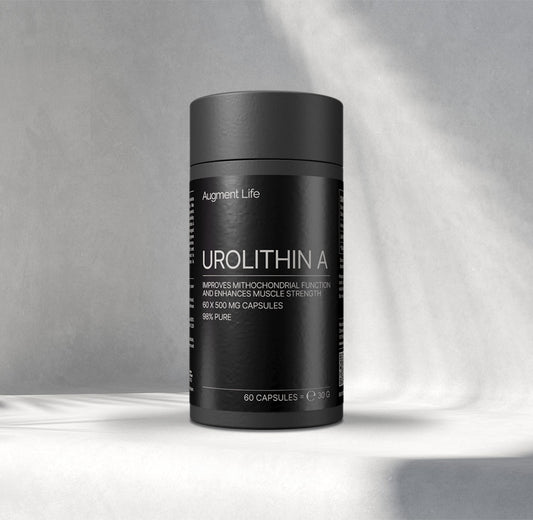The concept of menopause, its duration, early warning signs, and indicators of its end will all be covered in this article. In addition, we will go over common menopausal symptoms at different ages, including 40, 47, and 50.
For more information regarding menopause, please continue reading this article.
What are the 1st signs of menopause?
According to the World Health Organization (WHO), a woman enters menopause when she has not had her period for 12 months in a row and there is no other biological or medical explanation for the absence. This indicates that estrogen levels have sharply decreased and that the ovaries have ceased producing eggs (1, 2, 3). Menopause can happen earlier or later, although it typically happens around age 51.
Perimenopause is the transition period before menopause, often beginning several years earlier, typically in a woman’s early to mid-40s (2).
So, what are the 1st signs of menopause? One of the earliest symptoms is a change in menstrual cycle patterns. Periods may become irregular, shorter, or longer than usual. Some women may skip periods altogether for months before they resume.
Other early signs include:
- Hot flashes and night sweats,
- Sleep disturbances,
- Mood swings or irritability,
- Vaginal dryness,
- Decreased libido,
- Fatigue and brain fog.
These symptoms can appear during perimenopause, the phase that precedes menopause, and are linked to hormonal fluctuations, primarily a decline in estrogen (1, 2).
Signs of menopause at 40: premature menopause
While menopause before age 40 is considered premature menopause, many women start noticing signs of menopause at 40 as part of early perimenopause. This may include increasingly irregular periods, increased Premenstrual Syndrome (PMS)-like symptoms, or subtle mood and sleep changes (3).
Premature menopause could be a natural occurrence or may be caused by other interventions and treatments such as chemotherapy and ovarian surgical intervention (3).
It's important not to dismiss these signs, especially if they are persistent or impact your quality of life. Premature ovarian insufficiency (POI) is a condition that affects about 1% of women under 40 and may present similar symptoms (3).
Some studies show that metabolic disorders such as diabetes could be the cause of reproductive ageing, causing premature ovarian failure. Research shows a correlation between various foods and their association with early menopause, for example, high consumption of refined pasta and rice (4).
Women who experience menopause earlier than normal may have a higher risk of heart problems. Taking care of heart health is especially important in these cases (5).
Not only cardiovascular risk but also premature and early menopause can cause cognitive impairment and dementia by affecting the central nervous system (3).
Menopause symptoms beginning at age 47 and 50
By age 47, many women are well into perimenopause or may already have reached menopause. Menopause symptoms at age 47 often include:
- More intense and frequent hot flashes,
- Trouble sleeping or waking up too early,
- Increased anxiety or depression,
- Irregular or missed periods.
At this stage, hormonal shifts are more pronounced, and symptoms can become more noticeable. It’s also a time when bone density and cardiovascular health may start to be affected by declining estrogen levels (6).
For many, age 50 brings the peak of menopause symptoms. Symptoms of menopause at 50 often reflect both the physical and emotional toll of ongoing hormonal changes. These may include:
- Vaginal atrophy (leading to discomfort during sex),
- Urinary incontinence,
- Weight gain around the abdomen,
- Memory issues and difficulty concentrating,
- Joint or muscle aches.
These symptoms are part of a larger picture of estrogen withdrawal and affect all systems of the body. Lifestyle adjustments, hormone therapy (for some) (6), supplementation, and stress management can all help ease this transition.
How long does menopause last?
Some studies show that signals the end of menopause, symptoms like hot flashes and night sweats gradually decline, often tapering off around seven years after the final menstrual period. The transition into post menopause may bring relief, though some women still experience mild symptoms (7).
Vasomotor symptoms, like hot flashes and night sweats, typically last around 7 years but can sometimes continue for up to 10 years after the final menstrual period. What is important to understand is that long-term complications associated with low estrogen levels are the most concerning complications, for example, cardiovascular disease and osteoporosis (8).
Managing menopause: lifestyle and support
Menopause isn’t a disease, but its symptoms can impact on daily life. Thankfully, there are many ways to manage symptoms, including:
- Lifestyle changes: Regular exercise, a healthy diet, stress-reduction techniques, and good sleep hygiene can significantly help.
- Hormone Replacement Therapy (HRT): For some, HRT can ease hot flashes, mood swings, and vaginal dryness. However, it’s not suitable for everyone, so always consult a healthcare provider.
- Supplements: Calcium, vitamin D, and magnesium are commonly recommended to support bone and mood health.
- Support networks: Talking to others going through the same transition can be incredibly comforting and empowering.
Augment Life offers a wide range of supplements to support menopause. More information about some of them can be found here:
It is important to remember to contact health professionals before making any changes in your life, including a diet change, medication, or supplement intake.
Conclusion
Menopause is a challenging time for women, and if you pretend that it does not exist, it could be worse. Therefore, it is important to take control of your life and get things back to normal as normally as possible. First, it is important to look for professional help to understand your situation and your symptoms.
A lot of things can be done to reduce symptoms and maintain quality of life. Seeking assistance at your earliest convenience will be greatly advantageous.
Hormone Replacement Therapy, lifestyle changes, supplementation, and a support network are the most important things. Keep in mind that you are not alone; a lot of women are going through the same transition as you are. Menopause is part of a woman's life, and it's natural.
Discover more about menopause and women's supplements in our previous articles:
- Black Cohosh: A Guide to Its Health Benefits and Safe Use
- Female Supplements - Menopause, Libido, and Fertility
- Is St. John's Wort Good for Menopause?
- Is Curcumin Good for Menopause?
- Is Black Cohosh Good for Menopause?
- Is Ginseng Good for Menopause?
- Menopause supplements and vitamins - do they work?
Literature sources:
- World Health Organization. Menopause. Geneva: World Health Organization; 2024. Available from: https://www.who.int/news-room/fact-sheets/detail/menopause
- Talaulikar V. Menopause transition: Physiology and symptoms. Best Pract Res Clin Obstet Gynaecol. 2022 May;81:3-7. doi: 10.1016/j.bpobgyn.2022.03.003.
- Sochocka M, Karska J, Pszczołowska M, Ochnik M, Fułek M, Fułek K, Kurpas D, Chojdak-Łukasiewicz J, Rosner-Tenerowicz A, Leszek J. Cognitive Decline in Early and Premature Menopause. Int J Mol Sci. 2023 Mar 31;24(7):6566. doi: 10.3390/ijms24076566.
- Dunneram Y, Greenwood DC, Cade JE. Diet, menopause and the risk of ovarian, endometrial and breast cancer. Proc Nutr Soc. 2019 Aug;78(3):438-448. doi: 10.1017/S0029665118002884.
- Zhu D, Chung HF, Dobson AJ, Pandeya N, Giles GG, Bruinsma F, Brunner EJ, Kuh D, Hardy R, Avis NE, Gold EB, Derby CA, Matthews KA, Cade JE, Greenwood DC, Demakakos P, Brown DE, Sievert LL, Anderson D, Hayashi K, Lee JS, Mizunuma H, Tillin T, Simonsen MK, Adami HO, Weiderpass E, Mishra GD. Age at natural menopause and risk of incident cardiovascular disease: a pooled analysis of individual patient data. Lancet Public Health. 2019 Nov;4(11):e553-e564. doi: 10.1016/S2468-2667(19)30155-0.
- Zhang GQ, Chen JL, Luo Y, Mathur MB, Anagnostis P, Nurmatov U, Talibov M, Zhang J, Hawrylowicz CM, Lumsden MA, Critchley H, Sheikh A, Lundbäck B, Lässer C, Kankaanranta H, Lee SH, Nwaru BI. Menopausal hormone therapy and women's health: An umbrella review. PLoS Med. 2021 Aug 2;18(8):e1003731. doi: 10.1371/journal.pmed.1003731.
- Politi MC, Schleinitz MD, Col NF. Revisiting the duration of vasomotor symptoms of menopause: a meta-analysis. J Gen Intern Med. 2008 Sep;23(9):1507-13. doi: 10.1007/s11606-008-0655-4. Epub 2008 Jun 3.
- Peacock K, Carlson K, Ketvertis KM. Menopause. [Updated 2023 Dec 21]. In: StatPearls [Internet]. Treasure Island (FL): StatPearls Publishing; 2025 Jan-. Available from: https://www.ncbi.nlm.nih.gov/books/NBK507826/












